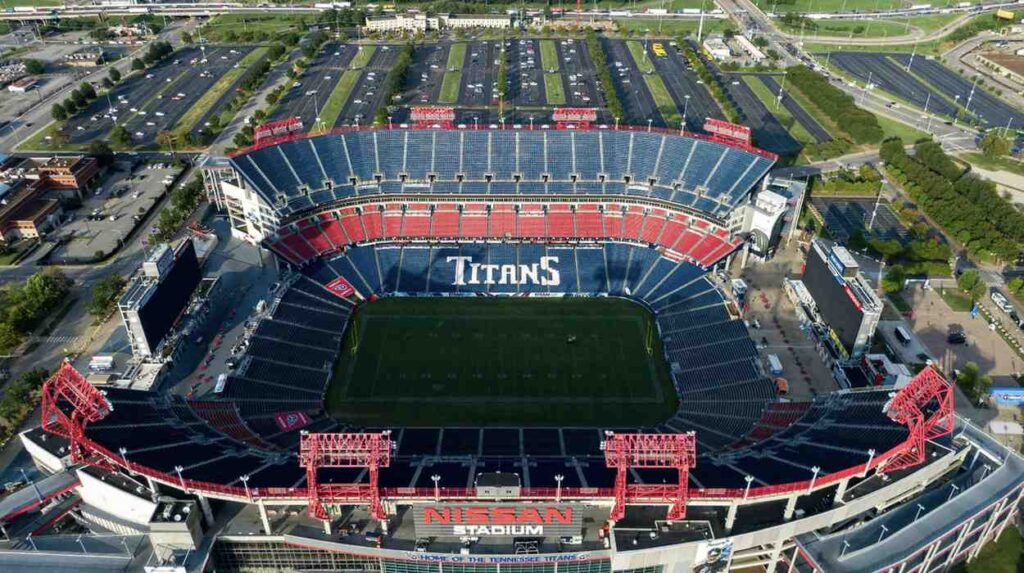What are Tennessee mortgage rates in 2025?
As of May 13th, 2025, Tennessee homebuyers are navigating a mortgage market characterized by moderately high interest rates that continue to fluctuate in response to economic conditions. Current data shows the average 30-year fixed mortgage rate in Tennessee hovering around 6.8% to 7.0%, with 15-year fixed rates ranging from 5.9% to 6.2%, representing slight changes from previous weeks
These rates reflect the broader national mortgage landscape, which has been experiencing volatility in response to various economic factors, including inflation concerns and the Federal Reserve’s monetary policy decisions.
Factors Influencing Tennessee Mortgage Rates
Several key factors are currently shaping Tennessee’s mortgage rate environment:
Federal Reserve Policy
While the Federal Reserve doesn’t directly set mortgage rates, its monetary policy decisions significantly influence the broader interest rate environment. After making three interest rate cuts in late 2024, the Fed has maintained a wait-and-see approach in 2025, causing mortgage rates to fluctuate as markets anticipate future moves.
Inflation and Employment Data
Inflation erodes the purchasing power of money. When inflation is rising, lenders often charge higher interest rates to compensate for the decreasing value of the money they will be repaid in the future. Likewise, the strength of the job market and overall economic stability can influence the demand for housing and, consequently, mortgage rates. It’s important to monitor employment rates as they are correlated to mortgage rates.
The Bond Market
The 10-year Treasury yield is a key indicator that strongly correlates with mortgage rates. Mortgage rates often follow the trend of these yields, as lenders base their rates partly on the returns offered by long-term Treasury bonds.
Economic Uncertainty
Recent economic policies, including tariff implementations, have created uncertainty in financial markets. This uncertainty has contributed to the volatility in mortgage rates, with rates often changing direction rapidly in response to economic news and policy announcements. International economic conditions and geopolitical events can also influence investor sentiment and the bond market, indirectly affecting mortgage rates in the U.S.
Housing Market Conditions
Tennessee’s unique housing market dynamics also play a role in mortgage rate trends. With home prices showing a 2% year-over-year growth and the median home price standing at $319,000, lenders are factoring in these market conditions when setting rates.

Regional Variations Within Tennessee
Mortgage rates can vary significantly across different regions of Tennessee:
Nashville Metropolitan Area
As Tennessee’s largest urban center, Nashville typically exhibits slightly different mortgage rate trends compared to the rest of the state. The area’s strong economic growth and housing demand may influence lending conditions.
Eastern Tennessee
Cities like Knoxville and Chattanooga have their own distinct mortgage markets, sometimes offering slightly different rates based on local economic conditions and housing demand.
Western Tennessee
Memphis and surrounding areas may see variations in mortgage rates based on local market factors, including employment rates and housing inventory.
Tennessee Mortgage Rate Forecast for 2025
Mortgage industry experts are providing mixed forecasts for the remainder of 2025:
Near-Term Outlook
Most analysts predict that Tennessee mortgage rates will likely remain in the 6% to 7% range throughout the rest of 2025, with relatively small fluctuations depending on economic data releases.
Factors to Watch
Key indicators that could influence future rate movements include:
- Inflation data
- Property values
- Housing market conditions
- Employment reports
- Federal Reserve policy announcements
- Tariff and trade policy developments
Strategies for Tennessee Homebuyers
Given the current rate environment, homebuyers in Tennessee can employ several strategies to secure the most favorable mortgage terms:
Improve Credit Scores
With lenders being more selective in a higher-rate environment, improving your credit score can significantly impact the rate you’re offered. Borrowers with scores of 740 or higher typically qualify for the most competitive rates.
Explore State Assistance Programs
Tennessee offers several homebuyer assistance programs through the Tennessee Housing Development Agency (THDA) that can make homeownership more affordable, including:
- Great Choice Home Loans program
- Great Choice Plus down payment assistance
- Homeownership for Heroes program
Rate Lock Considerations
With rates fluctuating frequently, securing a rate lock when you find an acceptable rate can protect you from potential increases during the home-buying process.
Consider Different Loan Types
While 30-year fixed mortgages remain popular, other options like 15-year fixed loans or adjustable-rate mortgages (ARMs) might offer more favorable terms depending on your situation. You can also check out some non-QM options:
Non-QM Mortgage Options
Asset Depletion Loans
For borrowers with substantial liquid assets but limited regular income (such as retirees or those with significant investments), asset depletion loans calculate qualifying income based on available liquid assets rather than traditional employment income. These loans consider how your assets could be used to make mortgage payments over time.
Bank Statement Loans for Self-Employed
Self-employed individuals in Tennessee can leverage bank statement loans that use personal or business bank statements (typically 12-24 months) to verify income instead of traditional tax returns. This is particularly beneficial for business owners who maximize tax deductions but need their actual cash flow recognized for mortgage qualification.
Debt Service Coverage Ratio (DSCR) Loans
For real estate investors in Tennessee’s growing rental market, DSCR loans qualify borrowers based on the property’s rental income potential rather than the borrower’s personal income. These loans typically require the property to generate enough rental income to cover the mortgage payment plus a buffer (usually 1.1x to 1.25x the monthly payment).
Interest-Only Mortgage Options
Interest-only mortgages allow borrowers to pay only the interest portion of their loan for an initial period (typically 5-10 years), resulting in lower monthly payments during this time. This option might benefit those expecting increased future income or planning to sell before the interest-only period ends.
Alternative Income Verification Programs
Some lenders offer programs that accept alternative forms of income verification, such as 1099 income, gig economy earnings, seasonal income patterns, or income from multiple part-time jobs that might not meet traditional qualification standards.
Refinancing Outlook for Tennessee Homeowners
For existing homeowners, current rates present a mixed refinancing landscape:
Limited Traditional Refinance Opportunities
With many homeowners having secured rates in the 3% to 4% range during the pandemic era, traditional rate-and-term refinancing may not be advantageous for many.
Cash-Out Refinance Considerations
Despite the current higher interest rate environment ranging from 6.8% to 7.0% for 30-year fixed mortgages, cash-out refinancing remains a viable option for many Tennessee homeowners who have accumulated substantial equity.
This is particularly relevant in rapidly appreciating markets like Nashville and surrounding counties, where the 2% year-over-year home price growth has created significant equity opportunities. Homeowners with mortgages originated during the pandemic’s record-low interest rate period must carefully weigh the trade-off between accessing their home equity and taking on a higher interest rate.

When considering a cash-out refinance in Tennessee’s current market, homeowners should conduct a thorough cost-benefit analysis comparing refinancing against alternatives like home equity lines of credit (HELOCs) or home equity loans, which might preserve their existing favorable mortgage rate. Key factors to evaluate include the intended use of funds (home improvements, debt consolidation, investments), the break-even timeline accounting for closing costs, local market appreciation projections, and the impact of the new payment on monthly finances. Consulting with a mortgage professional familiar with Tennessee’s regional housing markets can provide tailored guidance based on individual financial circumstances and property location.
Tennessee Mortgage Rate Trends Compared to National Averages
Tennessee’s mortgage rates typically align closely with national averages, sometimes varying by a few basis points. This alignment reflects the nationally integrated nature of mortgage markets, with local conditions having only a modest impact on rates.
Frequently Asked Questions About Tennessee Mortgage Rates
How often do mortgage rates change in Tennessee?
Mortgage rates in Tennessee can change daily or even multiple times per day. Rates are influenced by national economic indicators, Federal Reserve policies, and financial market movements. Lenders typically update their offered rates each morning, but significant economic news can trigger additional adjustments throughout the day.
What credit score do I need to get the best mortgage rate in Tennessee?
Most Tennessee lenders reserve their best mortgage rates for borrowers with credit scores of 740 or higher. While you can still qualify for a mortgage with a lower score, you’ll likely face higher interest rates. For example, a borrower with a 640 credit score might receive a rate that’s 0.5% to 1.0% higher than someone with excellent credit.
Are mortgage rates in Tennessee higher than in other states?
Tennessee mortgage rates generally align with national averages, typically varying by only a few basis points. Local economic conditions, housing market dynamics, and competition among lenders can cause slight variations, but these differences are usually minimal due to the nationally integrated nature of mortgage markets.
Should I wait for lower rates before buying a home in Tennessee?
Timing the mortgage market is challenging, and waiting for lower rates carries risks. While rates may decline in the future, housing prices in Tennessee continue to appreciate (2% year-over-year), potentially offsetting any savings from lower interest rates. Additionally, experts forecast that rates will likely remain in the 6-7% range throughout 2025, suggesting limited potential for significant near-term rate reductions.
How do I lock in a mortgage rate in Tennessee?
To lock in a mortgage rate, you’ll need to complete a loan application with a lender and request a rate lock once you’ve been pre-approved. Most Tennessee lenders offer rate locks for periods of 30, 45, or 60 days, with longer lock periods sometimes available for an additional fee. Be sure to get the rate lock agreement in writing, including details about the locked rate, loan terms, and expiration date.
What’s the difference between APR and interest rate on a Tennessee mortgage?
The interest rate represents the cost of borrowing the loan principal, while Annual Percentage Rate (APR) includes both the interest rate and certain additional costs like origination fees, discount points, and some closing costs. APR provides a more comprehensive view of your borrowing costs, making it useful for comparing loan offers from different Tennessee lenders.
Can I negotiate my mortgage rate with Tennessee lenders?
Yes, mortgage rates are often negotiable. To strengthen your negotiating position, obtain quotes from multiple lenders, improve your credit score before applying, demonstrate stable income, and consider paying discount points to lower your rate. Some Tennessee lenders may match or beat competitors’ offers, especially if you’re a strong borrower with excellent credit.
How do discount points work for Tennessee mortgages?
Discount points are upfront fees paid to the lender at closing in exchange for a reduced interest rate. Each point typically costs 1% of the loan amount and reduces the interest rate by about 0.25%. For a $300,000 mortgage in Tennessee, one point would cost $3,000. Whether purchasing points makes financial sense depends on how long you plan to stay in the home—generally, the longer you keep the mortgage, the more beneficial points become.
What types of mortgages are available in Tennessee?
Tennessee homebuyers can access a variety of mortgage products, including:
- Conventional loans (conforming to Fannie Mae and Freddie Mac guidelines)
- Non-QM loans
- FHA loans (with down payments as low as 3.5%)
- VA loans (for eligible military service members and veterans)
- USDA loans (for eligible rural properties)
- Jumbo loans (for loan amounts exceeding conforming limits)
- Adjustable-rate mortgages (ARMs)
- Great Choice loans through the Tennessee Housing Development Agency
How does the Tennessee housing market affect mortgage rates?
While Tennessee’s housing market doesn’t directly determine mortgage rates, local market conditions can influence lender behavior. In areas with strong housing demand and limited inventory, lenders may have less incentive to offer rate discounts. Conversely, in markets with slower sales or higher inventory, lenders might compete more aggressively on rates to attract borrowers.
Conclusion: Tennessee Mortgage Rates in 2025
As Tennessee’s housing market continues to evolve in 2025, mortgage rates remain a crucial factor for both homebuyers and homeowners. While rates are higher than the historic lows seen during the pandemic, they remain below the extreme highs of previous decades. By understanding current market conditions and employing smart strategies, Tennessee residents can navigate this complex landscape to achieve their homeownership goals.
For the most personalized guidance, consider consulting with a mortgage professional who understands the nuances of Tennessee’s diverse regional housing markets and can provide tailored advice for your specific financial situation.You can book a call with Defy Mortgage by clicking here today.

About the Author: Meet Todd Orlando, co-founder and CEO of Defy Mortgage and Defy TPO. With over 20 years of experience in banking and financial services at institutions like First Republic and Morgan Stanley, Todd has dedicated his career to broadening access to lending and revolutionizing the mortgage industry, particularly in the non-QM space.
In 2022, Todd launched Defy Mortgage to provide real estate investors, entrepreneurs, and self-employed individuals with a secure, streamlined, and personalized lending experience tailored to meet their specific needs. He knows firsthand how access to the right mortgage can make or break a project and how today’s borrowers need flexible financial partners and creative lending options designed for their unique needs and lifestyles. Traditional banks are rigid, and their one-size-fits-all approach is outdated. That’s why he created Defy Mortgage — to stay ahead of the curve, set new standards in lending, and deliver personalized, non-traditional solutions for those looking to purchase or refinance.
For the third year running, Todd has been recognized by Inman News for excellence in the mortgage and lending industry, landing on their prestigious Best of Finance list for 2025. He was also honored as a mortgage finance leader in 2023 and 2024 for the same award. His visionary leadership has earned him endorsements from esteemed former colleagues at prestigious institutions across the financial services spectrum.
Beyond his work in finance, Todd is also a co-founder of two software companies in commercial lending and healthcare tech, an active real estate investor, and a husband and father of three. An industry disruptor, Todd is here to redefine what’s possible in mortgage lending.
Mortgage broker itching to elevate client offerings? Check out our TPO business, Defy TPO: https://defytpo.com/




